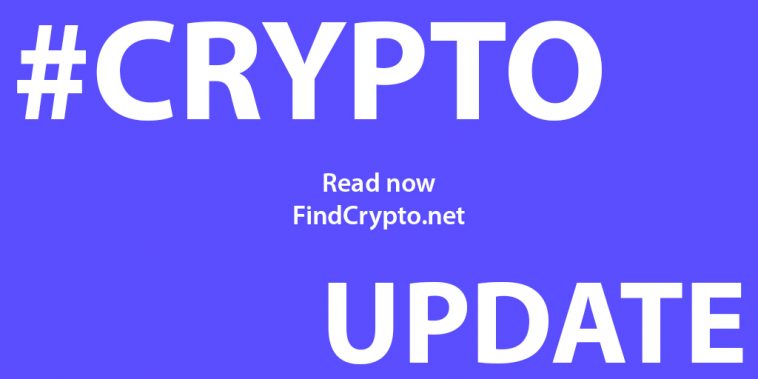CryptoCurrency : Weekly Crypto News Recap for the Week ending July 27
### Developments in Financial Services
* Global investment firm Vaultbank has announced that free stock trading will be added to its platform launch in October. The platform will now include the free stock trading, crypto trading, and even trading security tokens. Vaultbank’s platform is currently undergoing beta testing, but users can sign up for the platform’s waitlist on vaultbank.io.
* Popular cryptocurrency debit card provider, Wirex, has added a Ripple (XRP) wallet to its platform. 1.7 million clietns across 130 countries will now be able to use their Wirex Visa Cards to transact with XRP. XRP is currently the third-most popular cryptocurrency by market cap, and was specifically chosen by Wirex due to its unique utility for facilitating global payments.
* Decoin is disrupting the crypto credit card market with its DTEP Exchange & Trading Platform. The Decoin credit card will operate directly the company’s coin wallet and will permit users to spend their digital currencies wherever and whenever they choose. Users registered to this exchange will also supposedly have the ability to earn redistributed revenues, up to 20% of the exchange’s trading revenue.
* Fintech company Digital Asset announced a partnership with Google Cloud to aid in the construction of blockchain applications. Digital Asset and Google Cloud will provide support and software tools to blockchain application developers so that they don’t have to code the applications from scratch. The pair will also be working on Digital Asset’s developer program private beta, giving Google Cloud developers access to its Digital Asset Modeling Language (DAML) software development kit (SDK).
### Regulatory
* The Securities and Exchange Commission (SEC) has come to the conclusion that they need more time for the consideration of five Bitcoin ETF proposals. Direxion Investments submitted the proposals back in January. The SEC stated that they will announce their decision to either approve or deny the proposal on September 21, 2018. CBOE Global Markets also sent the SEC an ETF proposal last month that is also expected to be postponed.
* The Chinese mountain region of Xinjiang Uyghur is known for its vast areas of land and abundant electricity: key elements for Bitcoin (BTC) mining. However, the local authorities of Xinjiang have announced their plan to shut down all illegal mining operations by August 30,2018. Illegal mining operations are those that fail to comply to registration, tax, social security, and other laws.
* Japan Virtual Currency Exchange Association is suggesting domestic trading platforms limit investors to 4x leverage on their deposits. According to the Financial Services Agency, there are 142,000 crypto traders focused on derivatives a/o CY2017 in Japan, still a small portion of the estimated 3mm crypto traders in Japan. Just as a point of reference, 80%of crypto trading volume in Japan for CY2017 came from derivatives trading, recording USD$543bn – – 90%+ of this amount was from margin traders.
* Iran is currently looking to develop a domestic cryptocurrency in order to bypass its economic sanctions. Alireza Daliri, Iran’s Science and Technology Department head in charge of investment affairs, reported that the project is being worked on with the Central Bank of Iran. The cryptocurrency would back Iran’s national currency, the rial, and would allow cross-border transactions ahead of the US sanctions going into effect next month.
* The SEC rejected application for a Bitcoin ETF by Winkelvoss twins again. In its rejection, the SEC cited as a major concern the fact that “a significant portion of Bitcoin trading occurs on unregulated exchanges outside of the United States.”
* Hester Peirce, Commissioner of the SEC, has published a letter of dissent regarding the SEC’s recent decision upholding the agency’s past ruling to deny the Winklevoss twins’ Bitcoin (BTC) ETF. The SEC denied the Bats BZX Exchange’s proposed rule change hoping to allow trading of the Winklevoss’ Bitcoin Trust shares, leading Peirce to say “I believe that the proposed rule change satisfies the statutory standard and that we should permit BZX to list and trade this Bitcoin-based exchange-traded product,” and that the decision “sends a strong signal that innovation is unwelcome in our markets.”
* The Law Commission of India published a report regarding the legal status of sports betting and gambling in the country, referencing cryptocurrencies. The report recognizes cryptocurrencies as a method of payment for betting and wagering. The report also stated that “gambling transactions should be made cashless, making use of electronic means of payment such as credit cards, debit cards, net-banking, virtual currencies (VC – also known as cryptocurrency), etc.”
* US Commodity Futures Trading Commission (CTFC) Chairman Christopher Giancarlo says the CTFC is falling behind and needs to begin testing the blockchain technology during testimony to House Committee on Agriculture. Chairman Giancarlo suggests the CTFC is four years behind other global institutions like the Bank of England (BOE) as it relates to testing blockchain.
### General News
* Lufthansa, one of the world’s largest airlines, has announced a partnership with software firm SAP to create a competition focused on increasing the airline industry’s adoption of blockchain technology. There are currently not a lot of efforts being made to incorporate blockchain in the airline industry, and initial submissions into the competition are due at the end of August. Lufthansa is looking for applications regarding data processing, flight booking, loyalty programs, and supply chain enhancements.
* Cryptocurrency trading millionaires, especially in China, are looking into investments in foreign real estate markets as a form of diversification. Through the use of real estate startup apps, Chinese investors can buy real estate in California using Bitcoin (BTC), for example, through Hong Kong brokers that don’t require the same taxes and documentation as other financial assets held abroad.
* Binance, the world’s most popular cryptocurrency exchange, will soon enter the South Korean market. During the Blockchain Partners Summit in Seoul, Binance CEO Chanpgeng Zhao held a speech noting that Binance will enrich South Korea’s community. While Binance has not made any official announcements regarding the expansion, South Korean media outlets reported it following the summit.
* A New Jersey-based cryptocurrency mining startup, called Honeyminer, has released its free beta platform in June, and has amassed 10,000 downloads around the world already. The platform allows users to mine cryptocurrencies on their Windows laptops by running the app while the processor isn’t in use. Users will be able to mine Ethereum (ETH), Ethereum Classic (ETC), Monero (XMR), and Zcash (ZEC), but all earnings are transferred into Bitcoin (BTC) and sent to the user’s wallet.
* Since cryptocurrencies became popular several years ago, not many cryptocurrency platforms (i.e. exchanges and wallets) have conducted third-party security audits. However, three-month-old XMR Wallet, a web wallet for Monero (XMR) has announced its conclusion of an audit by the firm New Alchemy. Additionally, XMR Wallet has published the results of its audit, and stated that all issues found have already been resolved.
* ConsenSys, a blockchain technology company, has signed a Memorandum of Understanding (MoU) with China’s Xiongan New Area government. ConsenSys focuses on the development of Ethereum (ETH), and will be advising the government on blockchain solutions to make Xiongan a smart city. China’s president Xi Jinping has designated Xiongan a special economic zone and believes that by creating a smart economy using Ethereum, it could bring in USD$348 billion within the next 10 years.
* Bitmart, a global cryptocurrency exchange, has announced that it will be listing its own utility token, called BMX, on its exchange. The BMX token is an ERC-20 protocol token, and there will be 1 billion issued. All transaction fees paid on the BMX market will be redistributed to those who backed the project, and using BMX on the exchange lets users pay a discounted fee.
* US-based Coinbase is launching a crypto-backed gift card in Europe. Users of WeGift will be able to convert digital assets held in their Coinbase wallet to gift cards. Gift cards from WeGift can be used at over 120 retailers across the UK, France, Spain, the Netherlands and Italy.
* The Bank of Canada (BoC) released its Staff Working Paper this week, where it said that the proof-of-work (PoW) consensus system, the same one used by Bitcoin (BTC), held the most promise out of alternative consensus systems like proof-of-stake (PoS). PoW includes a built-in security measure, people with malicious intentions would need to spend a large amount of resources in order to successfully cheat the system. The paper continued that PoS unfairly gives users with the most coins (stake) in the system a higher probability of validating blocks.
* BitGo, a popular cryptocurrency custodial service, has announced its recent support of Zcash (ZEC). BitGo is the largest processor of on-chain Bitcoin (BTC) transactions in the world, and processes $15 billion every month in all cryptocurrencies. The Zcash team said that it is very excited for the recent support of their coin, and that along with their upcoming Zcash Sapling upgrade, this should prove to be a great catalyst for adoption of Zcash’s privacy features.
* California-based Propy, a global real estate company known for its decentralized title registry, has announced that it has successfully executed a real estate deal on the blockchain. The transaction was tracked every step of the process on Ethereum smart contracts, making this deal the first blockchain-recorded property deal in California, and only the second to be done in the world. The transaction used Bitcoin (BTC) as payment, effectively cutting out the role of banks for this deal.
* Waves decentralized exchange (DEX) was hacked on Tuesday, the first day it exited its beta test. Hackers were able to break into the exchange’s website and the company’s main site to phish for information in the personal wallets of users.
* Ethereum Chrome browser extension MetaMask was pulled from the Chrome Web store yesterday. It was listed again, 5 hours later. MetaMask has said it is unsure why its extension was pulled from the Chrome Web store. MetaMask is one of the oldest and widely used decentralized apps (DApps) on the Ethereum network.
* Augur has launched a platform that permits users to bet when certain public figures will die. If a user believes the public figure will die, they buy shares with ETH. If a user believes the public figure won’t die, they can short the bet by selling shares. If a user’s prediction is correct, they profit from the outcome. Augur uses a network of “reporters” who make sure that the bet is settled properly.
* Decenturion, constituted this past January, claims to be the world’s first decentralized blockchain-based digital state. Decenturion has appointed blockchain expert and founder of ICOBox, Nick Evdokimov, as its Minister of Information. The blockchain-based state has no central person of power, but is rather governed by passport holders’ voting using smart contracts.
* Popular cryptocurrency exchange Poloniex announced plans to delist nine tokens from its trading platform. The nine coins in question are FlorinCoin (FLO), FoldingCoin (FLDC), Vcash (XVC), Bitcrystals (BCY), Nexium (NXC), Radium (RADS), Blackcoin (BLK), Pinkcoin (PINK), and Riecoin (RIC). These cryptocurrencies reportedly do not meet Poloniex’s new asset framework. Owners of these coins have until September 2nd to withdraw them from the exchange.
Cryptocurrency
The official source for CryptoCurrency News, Discussion & Analysis.
Author: QuantalyticsResearch
Score: 0
Don’t forget to share the post if you love it !




